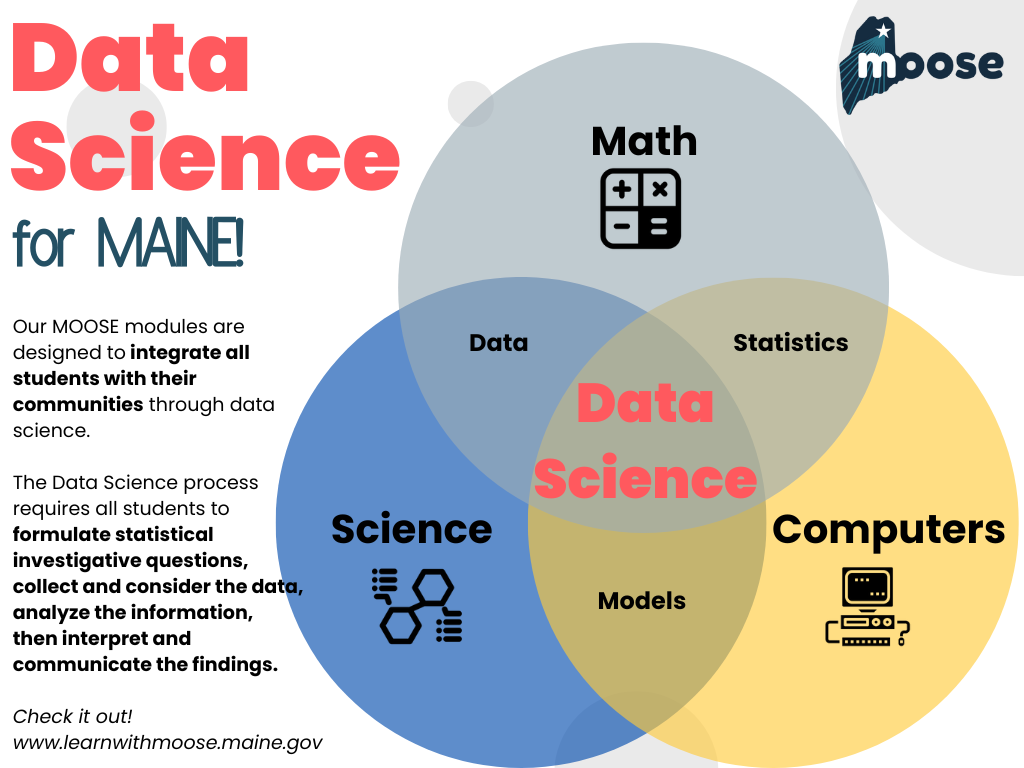
Data Science for Maine Students
Data science is a dynamic discipline relevant to today’s world! The data science process requires all students to formulate statistical investigative questions, collect and consider the data, analyze the information, then interpret and communicate the findings.
How can I use data science to understand, describe, and improve my world?
This guiding question is at the center of the engaging data science modules designed and developed by Maine educators for Maine students. The modules purposefully integrate students into their communities to make meaningful connections between data science and themselves. These modules are interdisciplinary, meaning they embed a variety of disciplines into the data science process including math, the arts, humanities, and sciences.

These modules are interdisciplinary, meaning they embed a variety of disciplines into the data science process including math, the arts, humanities, and sciences.
The Data Behind the Learning Progression
- Two years.
- 24 Maine teachers.
- One PK-12 learning progression.
- 13 place-based, project-based learning modules.
In year one of the work, Maine teachers broadly studied data science to develop a collective understanding of the topic. Then, teams developed a learning progression of essential knowledge and critical skills students would need at each grade-span in order to be successful as data scientists. This work was largely informed by Stanford University’s Big Ideas, the University of California, Los Angeles’ Course Kata textbook, and Data Camp’s coding courses.
In year two of the work, teachers conducted a gap analysis of the learning progression from year one to shape a second round of learning modules. Then, teachers engaged more deeply with applications of the data science process with targeted training from Data Classroom to integrate critical thinking skills more intentionally throughout the new modules. In addition, teachers worked closely with Maine DOE’s MLTI Ambassadors to effectively leverage digital tools to enhance their original data science content.
Explore the Modules
In the earliest grades, students use their natural curiosity to ask questions about their world and then make investigative observations in order to answer their own questions with their own statistics.
In later elementary grades, students collect and consider data collected with special focus on types of data, organizing data, and data visualizations.
Students in grades 6-8 use critical and computational thinking to engage with patterns and probability, helping them draw conclusions based on data sets.
Students in high school create their own data content with purpose and clarity, deciding how to represent conclusions for the greatest impact on their chosen audience.